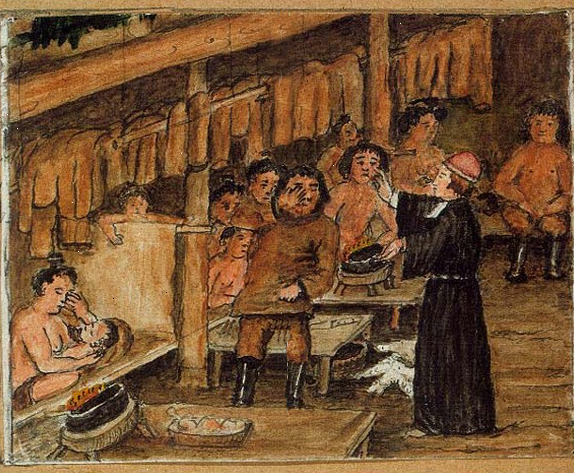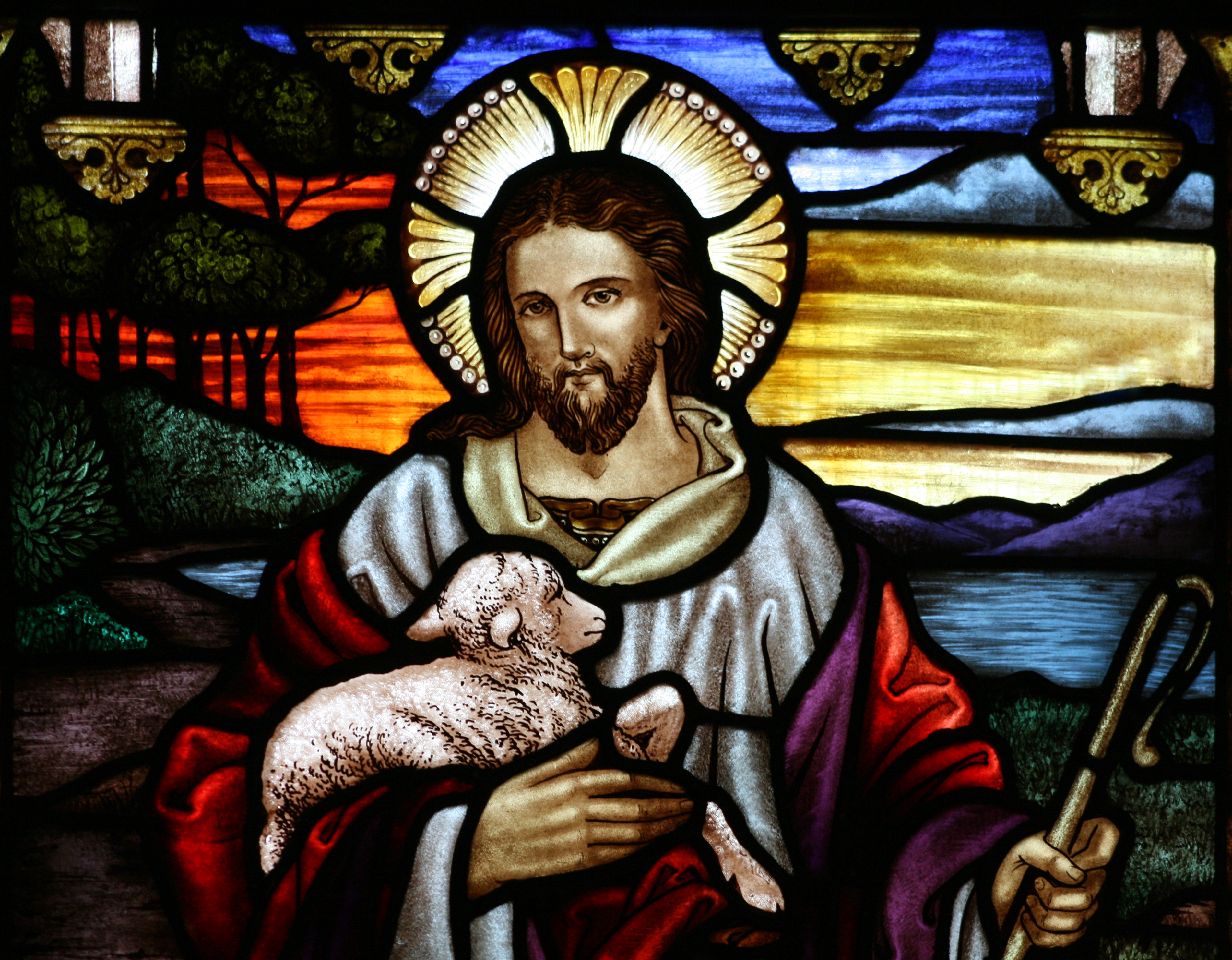Mission (Christianity)
The term mission is derived from the Latin word " missio " ( consignment ) and refers to the spread of Christianity (Gospel) to the first of every baptized Christian is called. This task is particularly sent missionaries attributed ( " messengers" ). Mission is to be understood as a general Christian order, but depends often on particular areas or target groups and aims to people with the message of Jesus Christ ( see, inter alia → God's love, charity, love of enemies, mercy, peace ) to come into contact to to enable them to commit themselves by personal concentrate more on Jesus Christ, as an offering for gelingendes, meaningful life. The deployment and financial support for specific missionaries is done by an ecclesiastical institution, an interdenominational missionary work, a single Christian church or personal friends of the missionaries.
Related terms for Christian mission is evangelization and evangelization.
Biblical Foundations
The Christian missionary activity is based on passages of the Bible, especially the Great Commission of the risen Christ - Jesus Christ - to the Apostles. In Mark it says: Go ye into all the world and preach the Gospel to every creature! Whoever believes and is baptized will be saved; but he that believeth not shall be damned. ( Mk 16:15 f EU). Such a Great Commission is found in all the Gospels and in the Acts of the Apostles (Mt 28:18-20 EU, Lk 24.46 to 48 EU, EU Jn 20:21, Acts 1.8 EU).
But not limited to the New Testament writings, the basis for the contract to Christian mission. Already in the Old Testament is the Christian theology statements that emphasize the universal claim of God's revelation - that God's message and love is not only the people of Israel, but of all mankind. Thus, the address of God to Abraham, which mentioned the whole of humanity, read in Christianity in the context of the Great Commission: " all peoples on earth will be blessed through you " ( 1 month after the 12.3 NASB).
History
In the Christian mission there are numerous phases in which certain churches or groups have been particularly active in certain areas. Here evidence of representations elsewhere:
- Under mission history in the making, an overview.
- The Celtic- Irish Mission and the Anglo-Saxon mission in Europe during the 6th to the 8th century is represented by these people at the moment: Patrick of Ireland ( Columba the Younger, Gallus, Kilian, Willibrord, Boniface, Gregory the Great), German Mission - Saxony mission.
- Mission of the Assyrian Church of the East
- Byzantine Mission to Eastern Europe - in the 8th to 11th centuries ( Cyril and Methodius of Thessalonica Thessaloniki, Photios I, Olga of Kiev)
- The beginnings of the Catholic mission among Jesuit Mission and Paris Mission
- Illustrative example of the interdependence of proselytizing and colonialism are the mission in India and the work of French Catholic missionaries in countries of the French colonial empire (it was in the 19th century, the second largest in the world).
- Newer evangelical and pietistic missionary movement, starting from pioneers like Nikolaus Ludwig von Zinzendorf (1700-1760) and he founded the Moravian Church
Current Situation
Peter Beyer house makes a difference between the large church and denominational embossed mission on the one hand, where the understanding of God's kingdom is easily identified with a particular church, and on the other hand, the philanthropic dominated Anglo-Saxon Mission, which improved conditions in the world has in mind. The existence of denominational mission unbound associations, the cause is often that it did not succeed the missionaries to move their home church establishing a mission.
In addition to the " new territory " mission in areas without Christian testimonies ( pioneer mission or earlier " mission to the Gentiles " ), the world mission of the Christian denominations ways has developed in a partnership between the churches of the North and the churches of the traditional mission areas, most of which today independent, autonomous churches. Many of these independent churches operate in turn Missions: To the Evangelical Lutheran Church in Tanzania sends missionaries to Mozambique. South Korea is considered alongside the United States as the country that sends in proportion to the population of their own country the world's most missionaries.
With the help of its partners, Diakonia also plays into the " younger churches " an important role. Because in the South of health and education on the task list, the government rarely is at the top, the churches feel challenged to serve the people as a whole. Evangelization and development, health work and social work is seen by the member companies of the EMW, Churches and Missions in Germany eV, and the AEM, Association of Evangelical Missions, which claims priority.
Mission is closely associated with Diakonia: The missionary societies of the various Christian churches combine their work with practical development assistance.
In ecumenical dialogue in the framework of the World Missionary Conference, the mission concept for Missio Dei has changed. He said: God is in his creation, and the Christians only participate in it. In this spirit, we went to the World Mission Conference in Athens in 2005 to the question of how Christian communities, local churches where and entire churches can participate in the healing and reconciliation, who need the people and societies urgently around them. Examples include the theology of liberation in Latin America or the Truth and Reconciliation Commission ( engl. Truth and Reconciliation Commission ) in South Africa. Due to the inter-religious dialogue with Muslims, Jews and members of other religions trying to overcome old mission positions.
Both the Catholic and the Protestant churches in Germany look at recent social - exposed to changes - demographic and fiscal policy especially. Back in 1999, has appointed a synod of the Evangelical Church in Leipzig Inner Mission as future core task of the Church. Especially in the new federal states, the alienation of people from the church and the Christian faith as a major challenge is seen. Missionary work come here to the task of reaching out to people to come to them about their lives this week and to acquaint them with faith in Jesus Christ. In a society of postmodernism could this - especially from the perspective of national churches - only happen if Christianity is clearly articulated as an offer among many. Therefore, a convincing presentation of Christian values for increasingly indispensable is held.
Lay mission
Often Missions are not performed by salaried missionaries, but by laymen, which employ between one week and about two years abroad and often support the permanent missionaries in their work. The boundary between Permanent and layman are fluid. Very brief use of one to five weeks are a kind of holiday activities. Such interventions may be carried out in the group ( for example, as a youth group).
The range of these missions ranging from sailing on a mission ship to the summer camp creates for other children at a summer camp.
Criticism
The Christian mission is criticized both by non-Christian as well as Christian side, this criticism either principals nature or rejects only certain aspects of the mission. Be criticized, for example, forced baptisms, as occurred in Germany especially at the time of the Saxon wars of Charlemagne in the 9th century, proselytism and the close connection of missionaries with the state's colonial policy in the period of the conquest and imperialism. However, the relationship between mission and colonialism was historically highly complex and as often marked by hostility of such support. Within the Christian mission, there are different schools of thought, so that most of the criticism of the mission among the various schools of thought takes place.
The perception of the Christian mission in the secular literature is property of its own complexity. In the comment column on the websites of newspapers is often a secular understanding of mission to be found, which is located close to the semantic field of Zwangschristianisierung.
The Protestant World Missionary Conference in Edinburgh in 1910 is considered as a switch between the ecumenical and evangelical school of thought, although there is still commonly accepted ranges. At the World Missionary Conference of the World Council of Churches in Amsterdam in 1948, the evangelical evangelism was accepted. The shaped by Pietism and evangelicalism conference tradition began with her own world mission conferences in Berlin in 1966 and Lausanne 1974.










